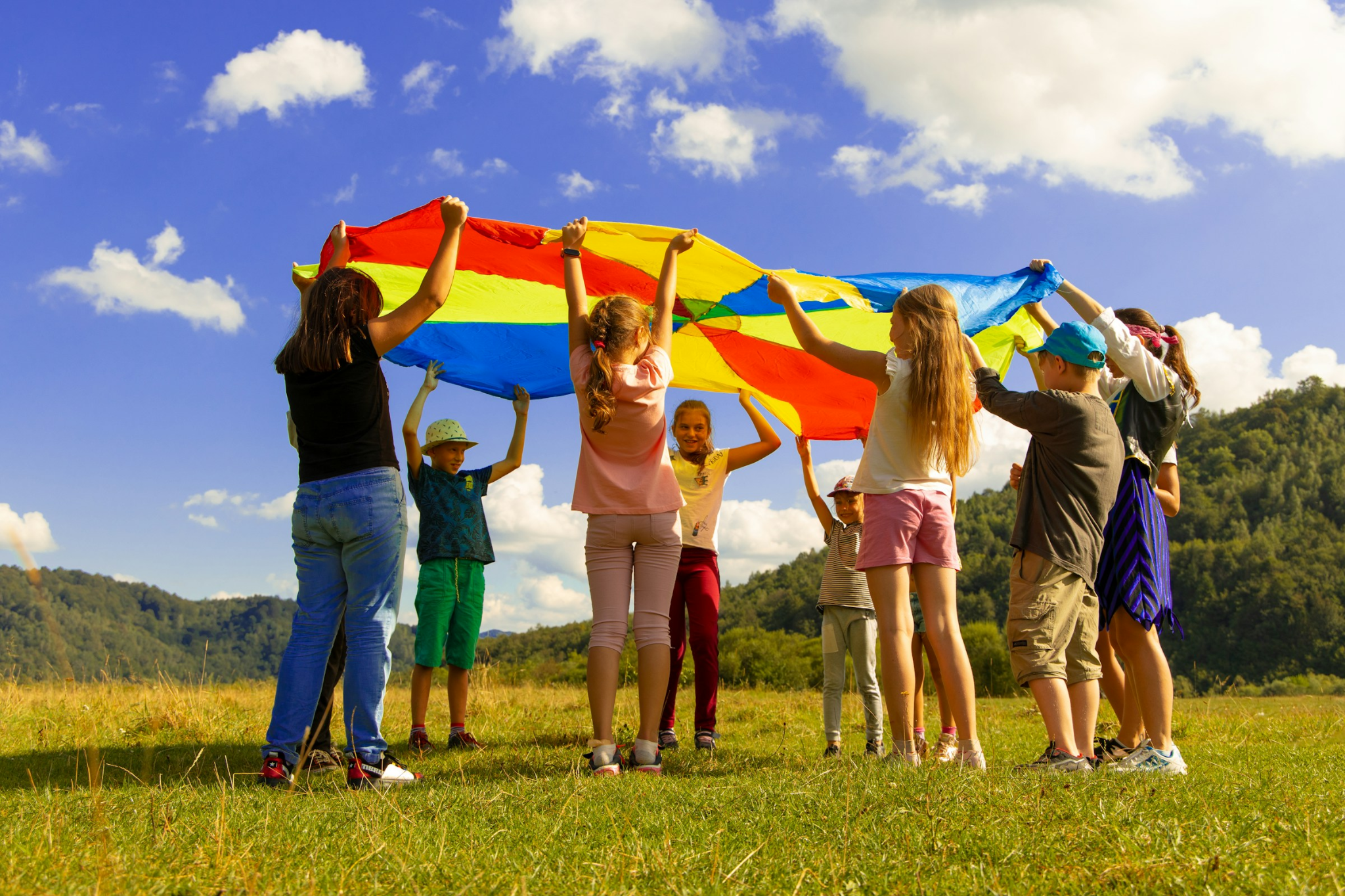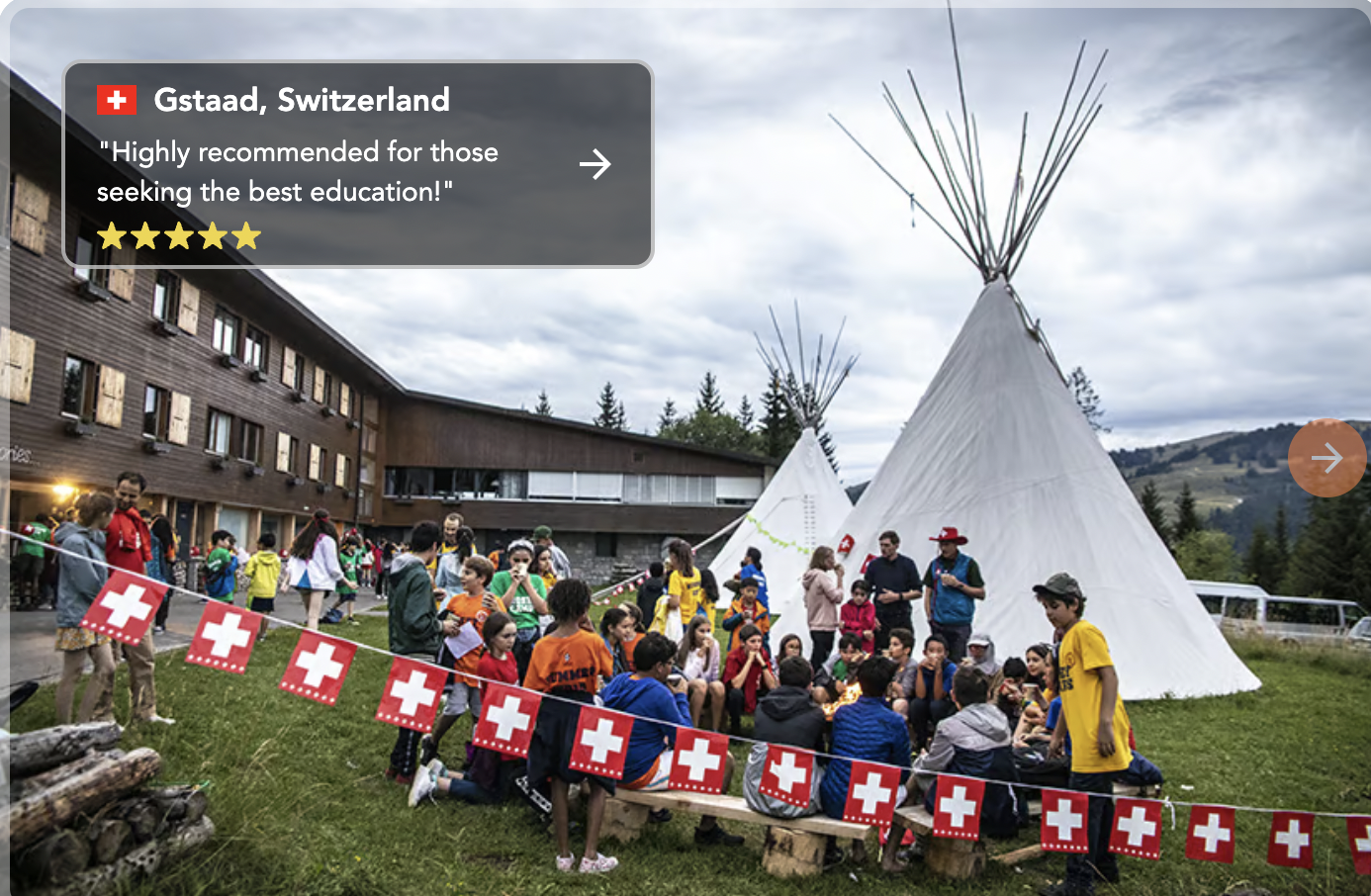As a nomadic mom, you’re always on the lookout for enriching experiences to share with your kids during the summer months.
Traveling provides incredible opportunities for learning and growth, but it’s also important to find ways for your children to make friends, develop skills, and enjoy some structured activities.
Two fantastic options to consider are summer camps in the UK and USA. These programs offer a perfect blend of fun, education, and cultural immersion that align well with the nomadic lifestyle.
The Benefits of Summer Camps for Nomadic Kids

Summer camps provide numerous advantages for children of nomadic families:
- Socialization: Camps allow kids to meet peers from diverse backgrounds, form friendships, and learn valuable social skills like teamwork and communication. This is especially beneficial for nomadic children who may not have as many opportunities to build long-term relationships due to frequent moves.
- Skill Development: Whether your child is interested in academics, sports, arts, or technology, there’s a camp to match their passions. Focused programs help kids dive deep into their interests, discover new talents, and gain confidence in their abilities.
- Independence: Being away from parents for a short period teaches children self-reliance and responsibility. They learn to manage their own schedules, make decisions, and solve problems independently, which are crucial life skills for any global citizen.
- Cultural Exchange: International summer camps bring together students from around the world, fostering cross-cultural understanding and global awareness. Your child will gain exposure to different perspectives, customs, and languages – an invaluable asset in our interconnected world.
- Memorable Experiences: From exciting field trips to silly camp traditions, summer programs create lasting memories and inside jokes that your kids will cherish for years to come. These shared experiences can be a touchstone of stability amidst the ever-changing backdrop of a nomadic childhood.
Choosing the Right Summer Camp

With countless camp options available, how do you select the best fit for your nomadic family? Here are some key factors to consider:
- Location: Look for camps in areas that align with your travel plans or that offer an appealing destination for a family vacation before or after the program. The UK and USA both have excellent summer camp options in scenic and culturally-rich locations.
- Program Focus: Consider your child’s interests, goals, and learning style when evaluating camp curricula. Do they want a broad sampler of activities or an intensive dive into a particular subject? Would they thrive in a competitive atmosphere or prefer a more laid-back vibe?
- Age Range: Make sure the camp is developmentally appropriate for your child and will provide suitable levels of supervision and support. Some camps have a narrow age range (e.g. middle school only), while others accommodate a wider span of ages and offer age-segmented programming.
- Duration: Think about the ideal length of time for your child to be away and how it meshes with your other summer plans. Camps can range from a few days to several weeks. For younger or more anxious kids, starting with a shorter session can help them build up to a longer stint in future summers.
- Safety: Thoroughly research the camp’s safety policies, staff qualifications, and emergency procedures. Don’t be afraid to ask detailed questions to ensure your child will be in good hands.
- Cost & Logistics: Be realistic about your budget and factor in expenses beyond tuition, such as travel, gear, and spending money. Look into scholarship opportunities and discounts for early registration or referring friends.
Nail down nitty-gritty details like transportation, packing lists, and communication plans well in advance.
Spotlight on UK Summer Camps

The United Kingdom is home to some world-class summer camps that combine top-notch academics with quintessential British experiences.
Imagine your child studying at renowned institutions like Oxford or Cambridge, exploring historical castles, or perfecting their cricket skills on an immaculate pitch.
Best Parents curates an impressive selection of UK summer camps for middle and high schoolers, with options for pre-college enrichment, English language learning, sports, and more.
Summer camps are housed at prestigious boarding schools and universities throughout England, Scotland, and Wales.
Many programs take full advantage of their locations with field trips to nearby cultural attractions and outdoor adventures like hiking and kayaking.
Camps typically run from mid-June to early August and range from one to four weeks in length.
USA Summer Camp Highlights

For a classic American summer camp experience, look no further than the incredible array of options in the United States.
From sleepaway camps in the great outdoors to academic programs on Ivy League campuses, there’s something for every interest and budget.
Best Parents offers a curated directory of the best US summer camps for middle and high school students, with filters for location, focus, and age range.
You’ll find camps dedicated to STEM subjects, visual and performing arts, leadership development, outdoor adventure, and much more.
Many camps incorporate iconic American pastimes like s’mores around the campfire, Fourth of July celebrations, and trips to theme parks or national parks.
Sessions typically start in June and run through mid-August, with lengths varying from one to eight weeks.
Making the Most of Summer Camp as a Nomadic Family

Once you’ve chosen a camp and your child is excitedly counting down the days, take some steps to ensure a smooth and meaningful experience:
- Set Goals: Talk with your child about what they hope to gain from camp, whether that’s mastering a specific skill, overcoming a fear, or expanding their friend group. Having intentional goals will help them make the most of their time.
- Prepare for Homesickness: Even the most independent nomadic kids may feel pangs of homesickness, especially if they’re used to having their family close by in unfamiliar places. Pack comforting reminders of home and discuss coping strategies in advance.
- Embrace the Digital Detox: Many camps have policies limiting electronics usage, which can be a tough adjustment for tech-savvy kids. Frame it as a positive opportunity to unplug, be present, and connect with others in real life.
- Plan Family Time: Look for ways to incorporate camp drop-off or pick-up into a family trip, whether that’s sightseeing in the area or reuniting for a special vacation afterwards. Building in quality family time will help your child process their camp experience and share their new knowledge and skills with you.
- Stay Connected with Camp Friends: Encourage your child to exchange contact info with their camp buddies and make an effort to keep in touch, even as your family continues traveling. These connections can be a grounding source of continuity and community for nomadic kids.
Summer camp can be a transformative experience for children of nomadic families, offering a chance to put down temporary roots, dive into personal growth, and forge lasting friendships.
By thoughtfully selecting a program and supporting your child through the process, you’ll give them a summer they’ll never forget – and one that perfectly complements your family’s nomadic way of life.
Leave a Reply